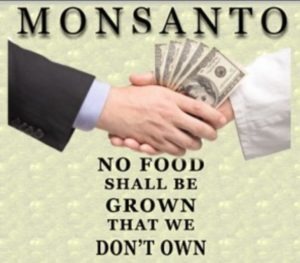I don’t spend too much time on GMO labeling here at Liberty Blitzkrieg, but that doesn’t mean I don’t hold a strong opinion on the matter. I completely and without question think that consumers have a right to know whether or not the food they put into their bodies has been engineered with biotechnology, and I certainly think it’s beyond ridiculous that genetically modified foods can still be labeled “natural,” as is the case currently. Apparently, I am not alone, as a New York Times poll late last year showed that a stunning 93% of respondents support such labeling.
Despite such support, GMO labeling bills have been tried and failed in several states in recent years, most notably in California and Washington state. However, Vermont just made history with the passage of H.112. The bill, which requires all GMO foods sold in Vermont to be labeled by July 1, 2016, will now head to the desk of Governor Peter Shumlin who has said he will sign it into law.
At this point, I want to congratulate the great state of Vermont for what they have just done. The passage of this bill is a huge deal on multiple levels, and not just when it comes to food choice and GMO labeling. While it is hugely significant that Vermont will now become the first state in America to require labeling (Maine and Connecticut already passed such bills, but they do not go into effect until a certain number of surrounding states pass similar laws), its significance is even more important when it comes to the states rights movement.
People who say things can’t be changed are fighting on the wrong battlefield. Fuck the feds and fuck Washington D.C. Use the state legislatures to get things done. Already in the past year, two states have ended marijuana prohibition and now the states approach is taking the lead on GMO labeling. The states are doing what the feds never could or would. This fits in with the overall macro trend of decentralization taking over as a means of societal interaction away from centralization. We have the power, it’s time to exercise it. Go Vermont.
Meanwhile, you know this movement is scaring the living shit out of Monsanto, which is why Rep. Mike Pompeo of Kansas just introduced a desperate bill, which activists are referring to as the DARK Act, that would ban states from requiring labeling. That’s Congress for you. Criminals on the Potomac.
The Wall Street Journal covered the story well last week. Here are some excerpts:
The movement against genetically modified crops scored a signal victory Wednesday, as the Vermont legislature passed a bill that would make it the first state to require food makers to label products made with the technology.
The Vermont House voted 114-30 to adopt a state Senate labeling bill. Gov. Peter Shumlin has said he plans to sign the bill, whose requirements would take effect in July 2016.
While Vermont is one of the smallest U.S. states, the legislation marks a victory for activists who have campaigned for GMO labeling, saying consumers have a right to transparency over the widely used technology. Food and agriculture industry groups, which have lobbied aggressively to block similar measures in other states, blasted the Vermont decision, saying it was driven by faulty science and would hurt consumers.
The vast majority of corn and soybeans grown in the U.S. are GMOs, and food companies estimate that about 80% of U.S. packaged-food products contain GMO ingredients in some form.
GMO advocates note that the U.S. Food and Drug Administration has approved their use, and argue that the technology has no proven human health threats and has increased crop yields and helped lower food prices.
For those of you somehow still under the impression the FDA has consumer interests in mind, I suggest you read the following: Fraud Alert: FDA Allowed Drugs with Fraudulent Testing to Remain on the Market
Read more
Follow me on Twitter.

 I’m no nutritionist. In fact, as I write this I am probably about 50 pounds overweight, which I guess depending on how you look at it could indeed make me a food expert. But for the most part, I’ve learned as an adult that I have horrible eating habits. I was raised like many other millennials. McDonald’s was a greatly anticipated treat at least once a week, and at home my mother made us tacos, meatloaf, cheese burgers, spaghetti, fried chicken and pork chops. Lots of potatoes, corn and 2% milk in the mornings with my Cinnamon Toast Crunch.
I’m no nutritionist. In fact, as I write this I am probably about 50 pounds overweight, which I guess depending on how you look at it could indeed make me a food expert. But for the most part, I’ve learned as an adult that I have horrible eating habits. I was raised like many other millennials. McDonald’s was a greatly anticipated treat at least once a week, and at home my mother made us tacos, meatloaf, cheese burgers, spaghetti, fried chicken and pork chops. Lots of potatoes, corn and 2% milk in the mornings with my Cinnamon Toast Crunch.

